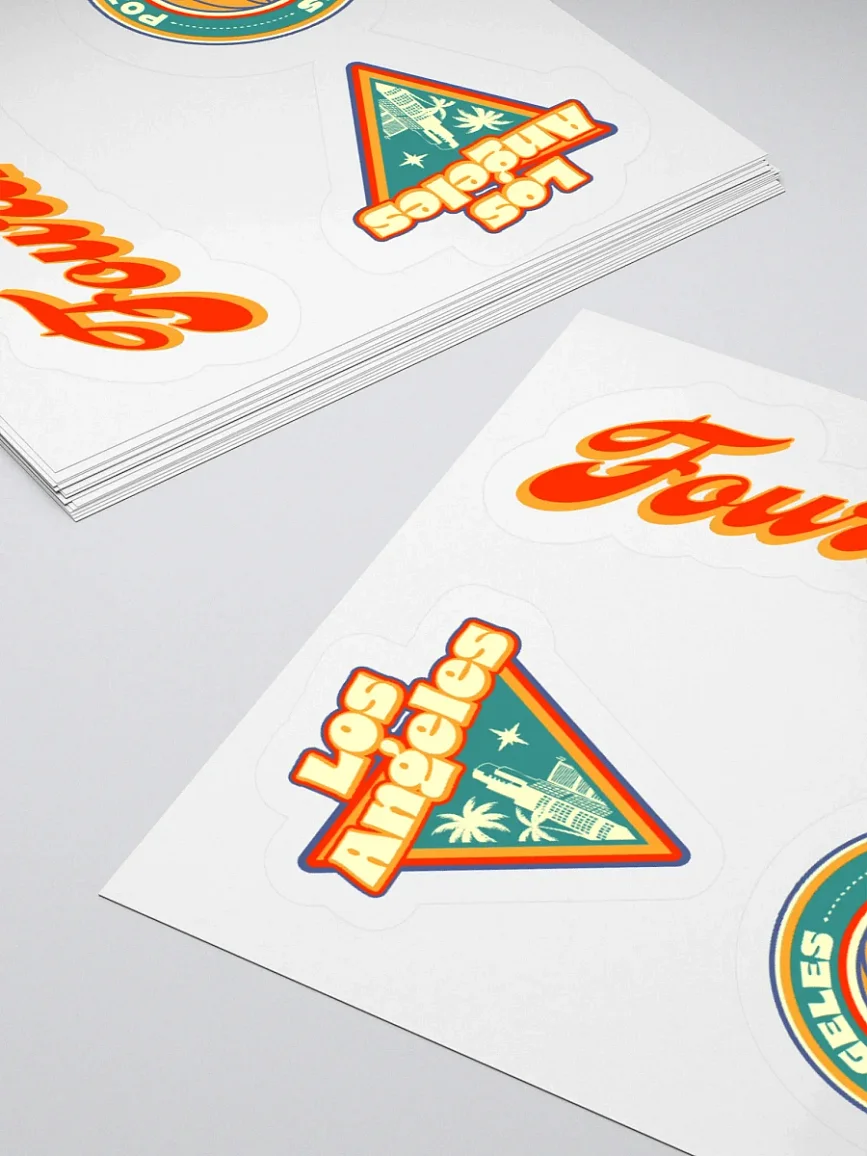How to Choose and Promote Your Best-Selling Products on Fourthwall

Starting your merch empire is exciting, and once the orders start rolling in, it’s easy to focus on what’s next.
But here’s the truth we’ve seen across countless successful shops: your best-selling products aren’t just popular, they’re packed with more potential.
For many first-time sellers, diving into their store's analytics can feel intimidating (like staring at a wall of numbers with no clue where to start). However, that’s exactly where the magic lies.
Inside your Fourthwall dashboard, you'll find clear signals about what your audience is loving. Signals, such as top sellers that drive impulse buys or best-selling items that offer built-in social proof and conversion power.
Because when you learn how to highlight these winning products and promote them with purpose, whether through bundles, discounts, or social media campaigns, you don’t just increase excitement, you increase profits.
In this guide, we’ll show you how to properly use Fourthwall’s analytics to identify your best-selling products and how to use that data to upsell, cross-sell, and build campaigns that actually drive results.
Using Fourthwall Analytics to Find Your Best-Selling Products
Data doesn’t have to be scary. We’ll show you where to look.
➡ Inside your Fourthwall dashboard, just click Analytics in the left-hand menu.
From there, you’ll see all the good stuff: visual breakdowns of sales, profits, top products, and more. These charts aren’t just for looking at—they’re tools that tell you exactly what’s working (and how to do more of it).

Here’s where to focus:
- Top Products by Units Sold: See exactly which items are selling the most during your selected date range. You might spot a sleeper hit that’s been doing way better than expected.
- Profit Chart: Want to know when you made the most money and what helped boost those sales? This chart shows spikes you can match to drops, promotions, or collabs.
- Orders and Average Order Value: How many orders are coming in, and what’s the typical basket size? This tells you what people are buying—and how much they’re spending.
- Sales by Country: If your fans are global, this indicates where to focus your marketing efforts. Maybe that “Summer in Tokyo” shirt has a fanbase in, well, Tokyo.
📌 Pro Tip: Use the Date Range filter to compare seasonal trends (like summer vs. winter), and click Full Report for CSV downloads and deeper filters.
5 Strategies for Promoting Your Best Sellers
Now that you have found your best seller, your next move is just as important: turning that momentum into long-term growth.
With the right product marketing strategies, your best-selling items can drive even more traffic, boost conversions, and increase overall profits in your online store.
Here’s how to turn those insights into action and make your top-performing products work harder (and smarter) for you:
1. Make It Your Signature Piece
.webp)
When one item starts to outperform the rest, don’t treat it like just another product; instead, make it the star of the show.
Your top seller should be your flagship product, the one that gives your shop its identity.
Consider featuring it front-and-center on your homepage or highlighting it in your social media bio link. If it’s really becoming a must-have among your audience, turn it into a key part of your membership incentives to entice more fans to sign up.
Just look at Paolo from Tokyo’s shop on Fourthwall, where his homepage banner boldly highlights his “Premium Kaminari Hot Sauce.”
It’s more than a product; it’s the face of his merch line by being instantly recognizable and totally on-brand. That’s not just smart, it’s product building.
2. Create a Social Media Spotlight
Your best-selling product deserves a regular spotlight in your content calendar.
However, instead of reposting the same product photo over and over, mix up your promotional tactics to keep customers engaged.
Share user-generated content (UGC), run a countdown for restocks, or film a quick behind-the-scenes clip of how the item was designed or packed.
Don’t forget to pair it with trending sounds or popular content formats on platforms like TikTok and Instagram Reels. This will create excitement and increase the chances of impulse buys.
Remember, most fans need to see a product multiple times before they make a purchase, so keep it fresh and consistent.
3. Run a “Fan Favorite” Newsletter
Don’t underestimate the power of email marketing when it comes to driving conversions.
Creating a short and engaging email campaign centered on your top seller can attract shoppers back to your store and provide them with a compelling reason to make a purchase again.
Add a subject line like “Back in Stock: Your Favorite Tee Just Dropped 👀” to grab your viewers' attention, or write something more personalized like “You Asked, We Restocked 🛍️” to make it feel like a direct response to their interest.
Next, use the body of your email to highlight why the item is a fan favorite. You can do this by including a glowing review or a customer photo, or by offering a limited-time discount or bundle to increase urgency and boost conversions.
4. Build a Collection Around It

A single top-selling product is great, but a world built around that product? That’s next-level.
Instead of treating your best seller like a standalone hit, use it as the anchor for an entire collection that tells a bigger story.
Collections give your online store structure and purpose, helping shoppers instantly get your vibe the moment they land on your page.
Take a look at Danielle Allard’s “Dino Derp” collection for inspiration.
What started as a fan-favorite design evolved into a complete product line, from stickers and tees to mugs, notebooks, and even a cozy hoodie, all tied together by her quirky dino character.
It’s cute, cohesive, and makes it easy for fans to buy into the full experience.
All you need to do is name the collection, give it its own shop section, and promote it like a limited-edition campaign.
This strategy not only gives your audience more to love, but it keeps them exploring your site longer, increases cart size, and helps establish your brand identity in a way one-off items never could.
5. Bundle It Up

One of the easiest ways to boost your average order value is by bundling your best-selling item with complementary products your fans are already eyeing.
For example, Eeveenara's "VYVEE Plushie Bundle Pack" combines her top-selling plushie with exclusive stickers and a collectible art print, turning a single item into a fully themed fan experience.
Not only does this increase Eevee's overall cart size, but it raises the perceived value of the entire set, making it feel more like a limited-edition drop than a standard product listing.
You can label these combinations as “Starter Packs,” “Gift Sets,” or “Limited Edition Drops” to create a curated shopping experience that feels more intentional and worth the buy.
Bundles are also perfect for gifting seasons or launches tied to special events, making it easier for consumers to justify purchasing more.
Plus, you can use bundle-exclusive discounts as an incentive to convert one-time buyers into bigger spenders without needing to rely on paid ads or deep markdowns across your store.
Small Tweaks. Big Results.
Growing your online store doesn’t always mean launching a ton of new products or reinventing your entire brand.
More often, real growth comes from zooming in on what’s already working (your best sellers) and finding innovative, repeatable ways to amplify them.
By making minor but strategic adjustments, you can increase conversions, boost profits, and keep customers engaged without exhausting your time or inventory.
Here’s a simple formula to start seeing results:
- ✅ Do an analytic deep dive to identify your top-selling item and when it performs best
- ✅ Focus on one product push. That could mean highlighting it with a discount, bundling it with complementary items, or updating it with a new variation
- ✅ Launch one targeted campaign (a TikTok video, an email marketing blast, or a “fan favorite” section on your homepage)
These aren’t massive lifts, but done consistently, they can drive some of your best results.
In the end, you’ll be building stronger attribution for your best-selling products and setting up better opportunities for cross-sells, upsells, and repeat purchases.
Remember, small wins add up fast, and before you know it, one product becomes the centerpiece of your next big brand moment.
Ready to find your next fan favorite?

Your next big win might already be sitting in your shop quietly racking up sales and just waiting for a spotlight.
With Fourthwall’s built-in analytics, you can stop guessing and start making data-backed decisions that drive real results.
From identifying your top-selling products to planning your next campaign, everything you need to level up is right at your fingertips.
Check out your dashboard and see what your best sellers are telling you; they might just be the key to your next breakthrough.
FAQ: Promoting Your Best-Selling Products
How do I attract customers to buy my products?
To attract customers, focus on creating eye-catching visuals, writing clear product descriptions, and optimizing your listings with strong SEO keywords.
Promote your items through social media marketing, email campaigns, and influencer collaborations to reach a wider audience.
Offering limited-time discounts, free shipping, or bundle deals can also encourage shoppers to make a purchase more quickly.
How do special offers attract customers?
Special offers tap into customer psychology by creating a sense of urgency and exclusivity, making shoppers feel like they’re getting extra value.
Promotions like BOGO deals, flash sales, or limited-edition drops encourage quick decisions and repeat purchases.
When paired with targeted email or social ads, special offers can drive traffic, build loyalty, and boost conversions.
Which sales promotion is most effective?
The most effective sales promotions are those that align with your audience’s behavior and preferences.
For example, discount codes, loyalty rewards, or seasonal bundles tend to perform best for ecommerce brands.
Pairing these with strong storytelling and social proof (like customer reviews or user-generated content) can make your products stand out and drive consistent sales growth.
















